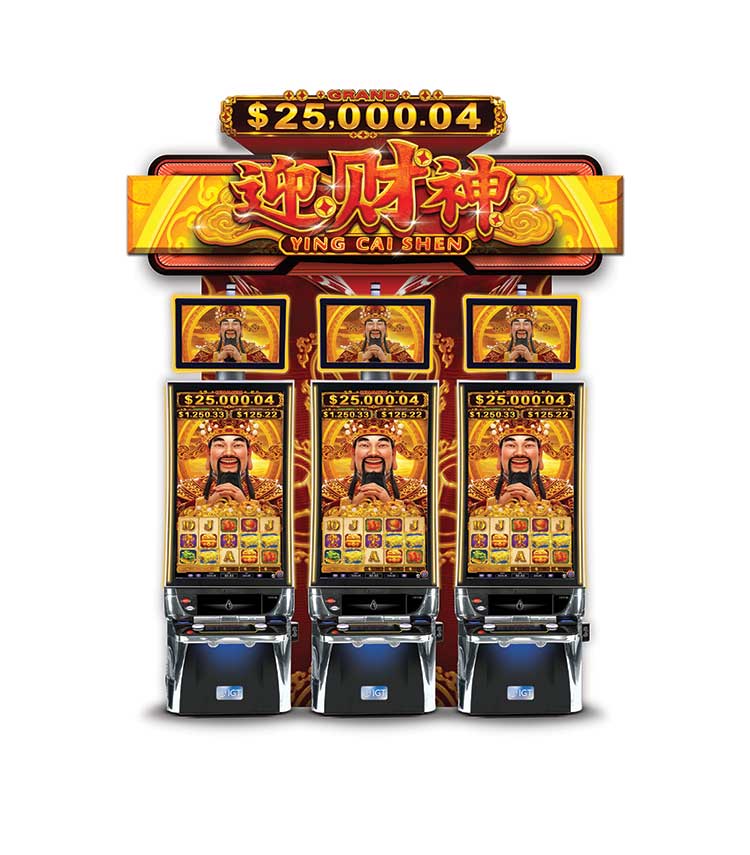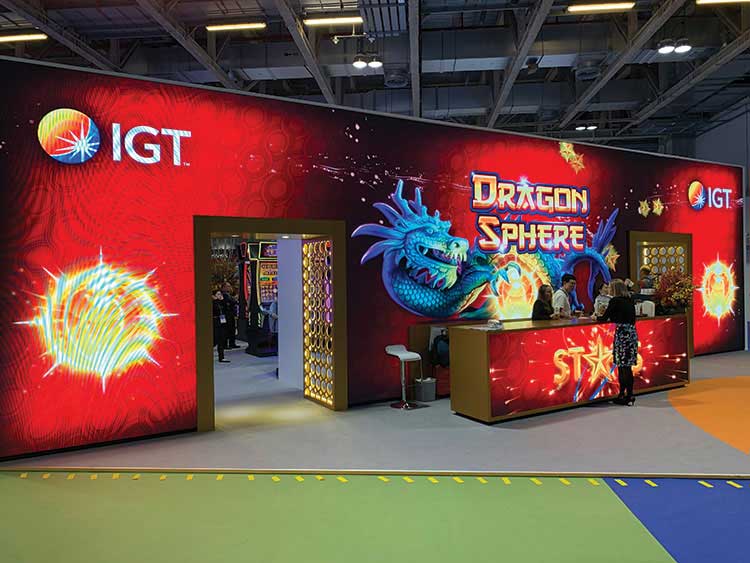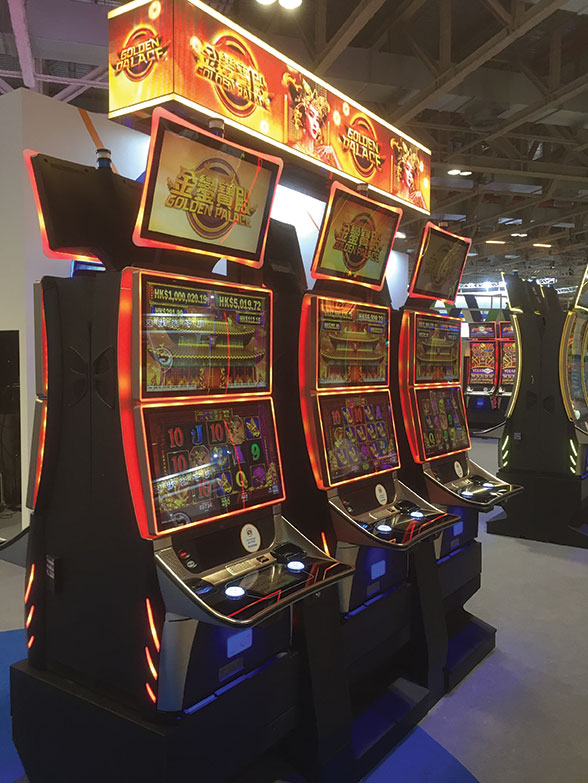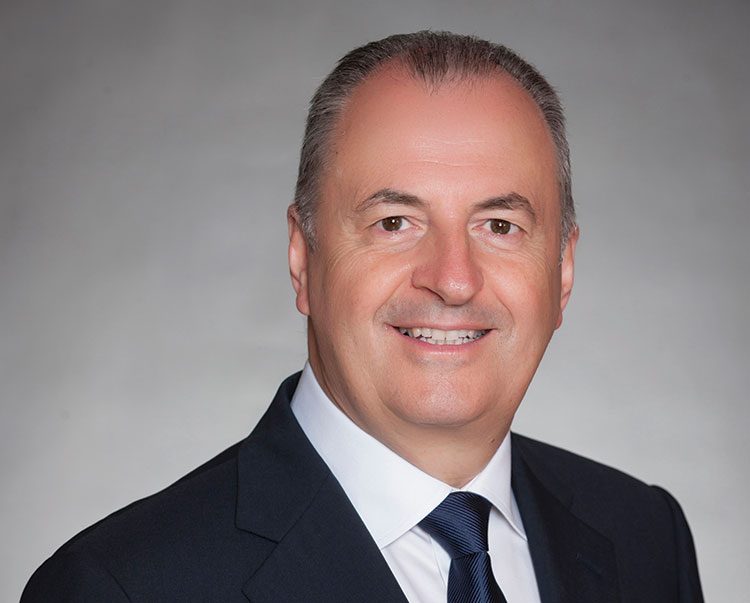Inside Asian Gaming sits down with Walter Bugno, CEO of IGT’s International division, to discuss the company’s ongoing push into Asia.
Ben Blaschke: Two years ago you outlined IGT’s plan to increase its Asian focus and develop a range of products specifically designed for the local market. How has that process been so far?
Walter Bugno: Perhaps slower than I had hoped but with increasing momentum. We can’t talk about Asia as one space. There are different markets so if I think about the Philippines and Singapore, we are having good success there and a lot of our new products are performing well.
In Macau we are still looking for the key to the lock to gain momentum. We’ve got sporadic games that are doing well, but the volume here is still low. The progress that has been made has been primarily through standalone games when the market in this part of the world is more linked product, so we had a real focus on linked multi-progressives (LMP) at G2E Asia.
The development of our LMP roadmap has been a process of evolution and we feel now that we can bring multiple products to the market adapted for here. We’re starting to bring those products here and of course they have a much better adaptation and customization to this market.
BB: How have the Macau operators responded so far?
WB: They’ve been very helpful, mainly because at the end of the day most operators want to have diversity on their floor. They don’t want to depend on one or two suppliers only but when they put you on the floor they want product that works. Generally speaking, even when a product hasn’t worked for us, we’ve tried to take the feedback and feed it into the next evolution. So that’s been very useful.
BB: What products have shown promise?
WB: Our range of Fury products have been very good on the CrystalCurve and are starting to show promise. Some of the standalone products that we’ve bought out like “Scarab” are showing a lot of promise too. We have a lot of new products we showed at G2E Asia that we’ll get a better feel for by Q4, such as “Golden Palace”, which is the first game we’ve brought from our Beijing studio.
We’ll also have some feedback on our Ying Cai Shen linked product, which I think is an outstanding game, by the end of the year but certainly the preliminary feedback is good. Now we want to see that translate to the floor.

BB: Where are you seeing the biggest growth in Asia?
WB: The Philippines has been a very big market for us in the last 12 months with some very good, strong support for our product. We have a very stable base with improving performance in Singapore and there is talk of increasing the number of units in the marketplace both at Marina Bay Sands and at Resorts World Sentosa. That gives us some confidence that we may be rewarded. We don’t know how much but there is an opportunity for us.
In Macau, while the market is not really growing here, we are coming off such a low base that if we can get one or two games that are performing well there is some good opportunity for us.
Of course, with new openings in Vietnam and Cambodia, those are also markets that are positive growth stories for us.
 BB: Are you seeing a disparity between what’s working in the Philippines or Singapore and what’s showing promise in Macau?
BB: Are you seeing a disparity between what’s working in the Philippines or Singapore and what’s showing promise in Macau?
WB: Yes and of course we don’t have the same games approved in all jurisdictions. We don’t have enough of a variety of games in Macau compared to what we have in the Philippines or Singapore.
But it’s interesting – I was in a discussion recently talking about the performance of certain games in Macau versus Cotai and they are completely different. A game that works on one side often doesn’t work on the other side. You don’t think of Macau as two markets but it is. That, for me, is very insightful in terms of our development because while we’re very well developed in markets around the world, in Macau we are very much the baby in the marketplace.

BB: IGT has also undergone an extensive internal restructuring process, including the appointment of a Managing Director for each region. What impact has that had?
WB: I think the moves we’ve made have been very, very positive and the development of the Beijing studio is a case in point. Prior to the latest organizational change, Beijing was a supplementary depot that did certain pieces of work around quality assurance or software preparation but they never developed their own games. Now we have resourced up the studio both from a people perspective and a capability perspective for them to conceptualize, develop, produce and launch a game in its entirety. That’s a big development in less than 18 months for a group of people.
We’re very, very proud of what they’ve done in Beijing. In releasing the first of its games, “Golden Palace”, we’ve taken our time. We didn’t want to rush out a game. It’s at version 5.5 because we wanted to keep refining it to get it right. We made a conscious decision to invest in quality because once we get it right the first time we know the flow-on will be very positive.
 So that is one of the benefits of the organizational change. It’s the same with the Australian studio which has gone from relying on taking concepts out of the US to develop and remake, to now actually being an exporter of content or concepts from Australia to the US.
So that is one of the benefits of the organizational change. It’s the same with the Australian studio which has gone from relying on taking concepts out of the US to develop and remake, to now actually being an exporter of content or concepts from Australia to the US.
BB: IGT’s 1Q19 results showed a 5% decline in revenue and 4% in Adjusted EBITDA, which equated to a 1% fall in revenue and steady Adjusted EBITDA at constant currency. What should we read into those results?
WB: We were significantly impacted by foreign exchange, so in trying to understand our results you really need to go back to constant currency and from a constant currency perspective our revenues were effectively flat year-on-year. That was driven by the fact that last year we had some significant systems product sales which can happen in any given period.
We had MGM Cotai last year which was a significant piece of business that doesn’t repeat itself this year, but we replaced that via an increase in gaming machine unit sales. The momentum on the gaming machine side tends to indicate that a lot of the work we’ve invested in the past 18 months in terms of content is starting to gain traction. We were quite pleased with that outcome.
Systems will continue to be sporadic. We have our core maintenance business which is recurring but if there is a new opening you get a peak, if there are no openings you get a trough.
Overall I think Q1 was a continuation of the growth of our business and getting back onto the front foot when it comes to the gaming side.
































